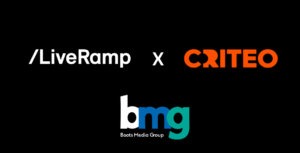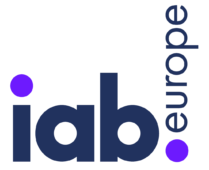Marco Bertozzi: Technology Should Not Be The Differentiator For Agencies; It’s The People Behind It And What It Delivers That Counts
by Ciaran O'Kane on 20th May 2010 in News


Marco Bertozzi is the Managing Director, EMEA, VivaKi Nerve Center. Vivaki is a strategic unit within Publicis Groupe that helps agencies leverage the scale of the group's media and digital operations to improve campaign performance for its clients. Marco took time this week to speak to ExchangeWire about the Vivaki operation in more detail, the industry's move to automated audience-buying, and the evolution of the agency model.
There’s much confusion about what Vivaki does? Is it buying platform? Is it a crack exchange trading unit? Can you explain the Vivaki proposition in more detail?
MB: Vivaki is the strategic entity created by Publicis Groupe to leverage the combined scale of its media and digital operations, which represent nearly $60 billion dollars in global ad spend and influence. VivaKi aggregates the marketplace influence of five autonomous brands, including: two global media agencies, Starcom MediaVest Group and ZenithOptimedia; two leading digital marketing agencies, Digitas and Razorfish; and a premiere futures practice, Denuo.
On behalf of its agency brands and their clients, VivaKi faces the market to help identify and build technology, message distribution, audience aggregation and content solutions for the future. VivaKi also includes a “Talent & Transformation Practice”, which leverages the scale of the VivaKi brands to develop and deliver tools and approaches designed to attract, develop, train, motivate and reward the world's best people.
Sitting at the core of VivaKi is the VivaKi Nerve Center, which serves as a think tank, R&D centre and testing ground to activate new pathways for clients to connect with consumers in an increasingly digital world.
The key objective of the VivaKi Nerve Center is to help deliver better solutions for our clients as the marketing landscape continues to evolve and accelerate at a fast pace, collaboration within the VivaKi family, and across the Groupe, is essential.
To succeed in our mission, the Nerve Center will focus on some key areas to empower our VivaKi agency teams and clients:
Global Platforms & Products: Developing global platforms and proprietary products that help our agencies differentiate and compete in the marketplace. Products will be supported by an advanced underlying technology and data infrastructure that delivers speed and scale.
Industry-Leading Partnerships: Creating strategic global partnerships that provide tangible value for our clients and partners, while differentiating against the competition.
Innovation & Thought Leadership: Investing in innovation and next generation emerging opportunities, like The Pool, which will validate our leadership position in the marketplace.
Our ad exchange solution is called Audience on Demand and is therefore a key strand in the global platforms and products category above and indeed innovation. It’s one of the most exciting areas to touch all agency groups in recent years and needs to have a defined and aggressive focus put upon it. Vivaki Nerve Center has worked very collaboratively with the brands in delivering the Audience on Demand platform to their clients. We are live with Audience on Demand and really excited by the performance of the solution.
Can you elaborate a little more on your role within Vivaki?
MB: My role in is Managing Director of The Vivaki Nerve Center in the EMEA. I report into the Global President of the VNC, Curt Hecht. The VNC has made significant progress in the US and my role is to work closely with the brand management and digital teams to establish how the VNC can help them in delivering the future-facing digital solutions that our clients are asking for everyday. Ad exchange trading through Audience on Demand is a significant area of work for me.
What’s your perspective on automated trading and audience buying through exchanges and other demand sources?
MB: I have been blown away by it. I may be biased and perhaps my background lends itself to making this exciting to me but when you see the potential of automated buying you can’t help but be impressed. It’s worth saying that automated buying is a little misleading. It requires clever optimisation strategies and insights that the agencies need to lead through talented people. I would not want people to think that you a press a button and it’s all done. Anyone who thought search bidding would be automated would testify that is not the case – it is search bidding times ten so definitely not just automated.
The trading platform allows you to target exactly the individuals you want at the price you want. You are buying one impression at a time which makes a CPM approach look outdated although it is not the death of the CPM buy just yet, not least because media auditors would not know what to judge us on! I believe it will ask questions of every agency trading model to some extent or another. It will also challenge auditors to stop judging agencies on an arbitrary discount off a pool metrics, and force everyone to consider more performance related contracts. I think for now it lends itself more easily towards the performance models but down the line I can see far more being traded through this method.
Do you think that large European holding companies like Publicis are now seeing ad exchanges as an efficient channel to buy ad inventory?
MB: I think the large network groups get a hard time for not changing enough and being slow to react. In some ways that may be true but agencies today are very different to those of 15 years ago. They have completely transformed: agencies realise change is inherent in what they must deliver year in year out.
Ad exchanges are just another media / trading / targeting opportunity that have come along, and agencies will embrace it and make the most out of it on behalf of their clients. My experience so far is that all the groups see the benefits of it but that will vary by group as some are more advanced than others. You will see who believes in it the most by how quickly they grow their ad exchange spend because once you start to see the results, clients and agencies alike will want to move their budgets into new the model.
Do you think that trading on ad exchanges makes it easier to leverage agency and client data to deliver better campaign performance?
MB: Trading on ad exchanges will allow data to become more important but actually it’s not the exchanges where the benefit lies but with the use of DSPs like Audience on Demand. It is this technology that allows us to best use data to enhance the performance of campaigns and target only those users that are most likely to deliver a beneficial response for our clients.
The combination of our clients being able to retarget their visitors but on a much larger scale with the introduction of third party data means we can turbo-charge our schedules to deliver at the right cost and at the right level of volume. Those third party vendors need to move quickly over here. We already have demand and they are a little slow to get going. I was pleased to see Phil moving from Yahoo to Quantcast, perhaps a sign of things to come.
Does Publicis have an exchange strategy for Europe, and if so will this be headed up by Vivaki? Are there plans to devote more resource to developing this area of the business?
MB: This is not a UK or US only market place. It will become important across all major markets so of course we will grow our business in those countries. Many of our major European markets are already testing different models and gaining from the insights. Vivaki Nerve Center will take the route that drives the consistency and ability to learn as a group and not at a country/agency level. We are in the very formative stages of this area so it’s important we all learn from each other.
Resources will evolve over time. Some people will re-skill into this area, some will be recruited. But we have time yet to get into that. Rest assured though that the number of people working in this area will grow substantially!
What do you think are the key difficulties in moving an agency toward automated media buying? Is it the lack of technology and data skills that exist within the agencies? Or is it a lack of technology?
MB: It’s not a technology issue. We have the technology and it works. I am sure all of our competitors have their technology too. Some will work better than others perhaps, but generally I don’t see that as an issue. Technology should not be the differentiator for agencies, it’s the people behind it and what it delivers that counts. Clients do not want pitches where we all get our technology out and wave it about; they want to see insights and results.
In Vivaki there are pools of people who understand this new area and those that know less about it but is that not always the way? Over time we will train people and recruit people so that we have the right level of understanding and evangelism in the business. Look how agencies changed around search. We had the same discussions back then and we now have these amazing skill sets around search in the agencies, so I don’t really see too many issues. If you think the opportunity is a good one, you can make things happen.
Do you think the arrival of DSPs into the European market will help agencies bridge this technology and skills gap?
MB: DSPs will allow agencies to build campaigns across multiple ad exchanges, create data pools, and control frequency etc across the whole playing field rather than at a site or network level. They will also provide us with the largest search area when we are trying to find the elusive consumers who have visited our client sites previously. DSPs are enablers so of course it’s a great innovation in the marketplace globally.
I would say that I believe a true DSP is one that’s only interest is in providing technology to do all the above. It should not to try to resell inventory or have morphed from an ad network. There are many blaggers out there and it’s important that people choose carefully in who they work with as you may discover that the systems they provide are not as future-facing as you thought. The market place is very grey around the edges!
What’s your view on real-time bidding? Is it a game changer for the display market? Or are there still fundamental problems that need to be worked through (such as the computational costs) before we see the benefits?
MB: It works. Our campaigns are delivering great results on the RTB strands of the campaigns. I think RTB will be affected by many different elements not least volume of competition, which will only increase. But this is where the clever use of data helps you in RTB: only you know what is deemed a valuable cookie. Hence you will be bidding on it, not the rest of the world. This is different to search where everyone knows that if you bid on home insurance you will sell insurance. This is a huge benefit for ad trading – the agency knows who is valuable not the publisher telling us what is valuable.
Overall I believe that RTB will be a game changer. Suddenly impressions are valuable again in the volume game. Interestingly though, they are valuable from a data perspective and not so much from a context /channel perspective. The rules have changed. What’s premium now?
How do you see the European exchange space developing over the next twelve months?
MB: I think you will see many of the major players in the US getting people on the ground here to push into big European markets. The ecosystem is developing rapidly in Europe, and it will not be any different than the US. There are already companies up and running in Europe, providing ad serving and other services, and they will try to steal a march in these markets. The DSP pure players will soon be driving a more objective approach across Europe. I also think we will see the likes of Google really ramping up in the markets here, which in itself will drive liquidity.
AgencyDataDisplayDSPExchangeProgrammaticTrading








Follow ExchangeWire